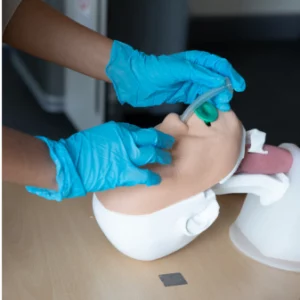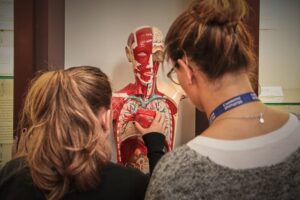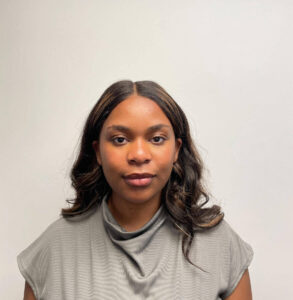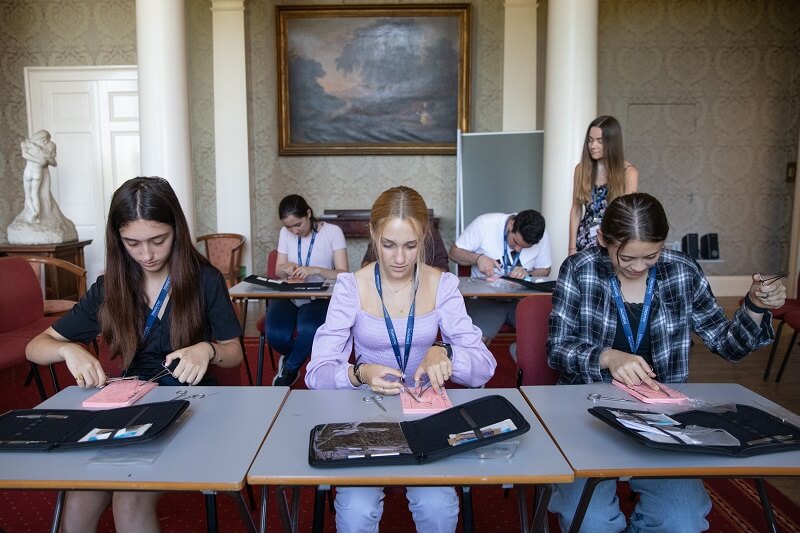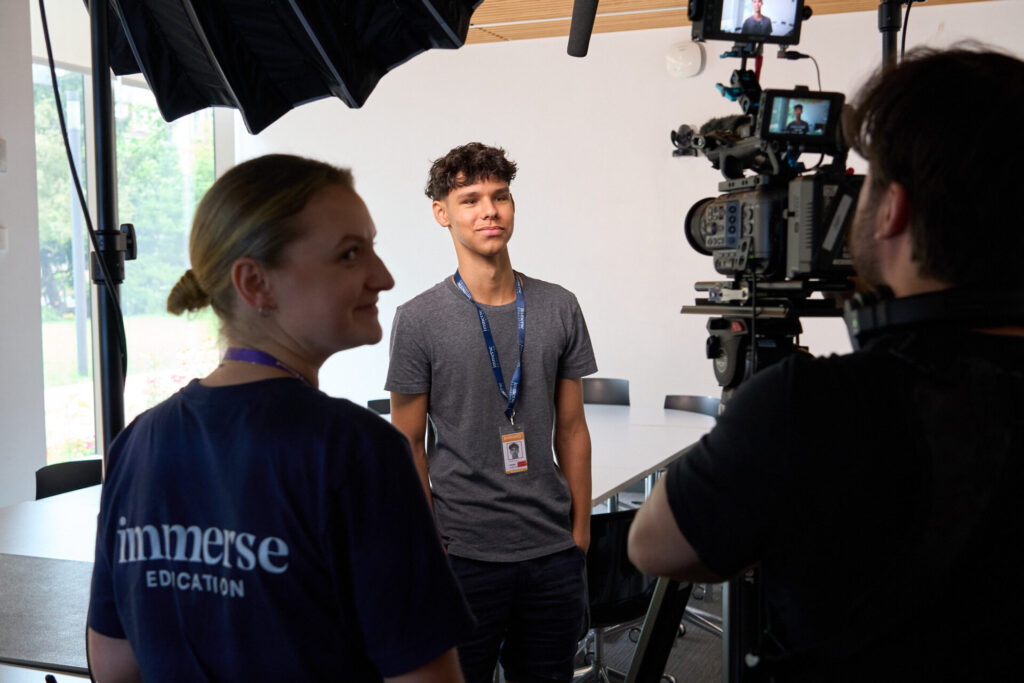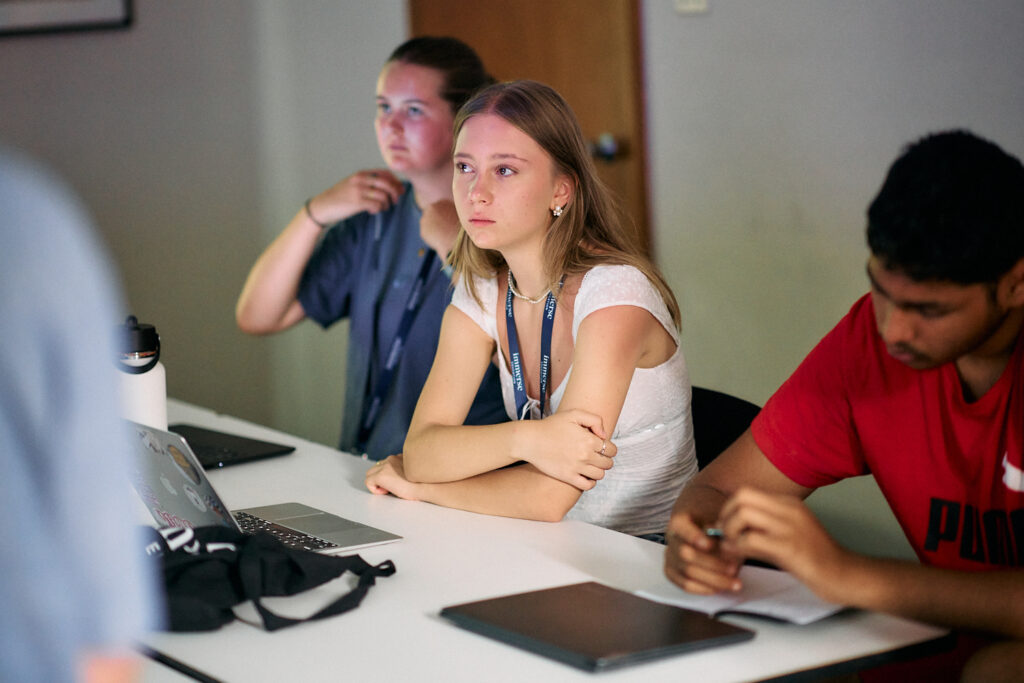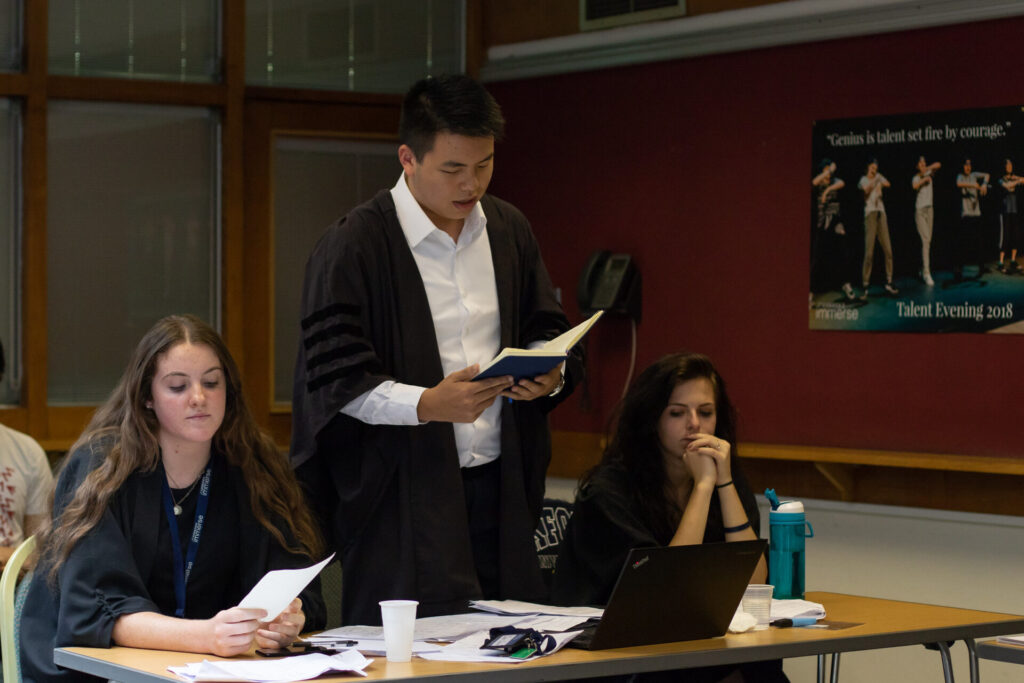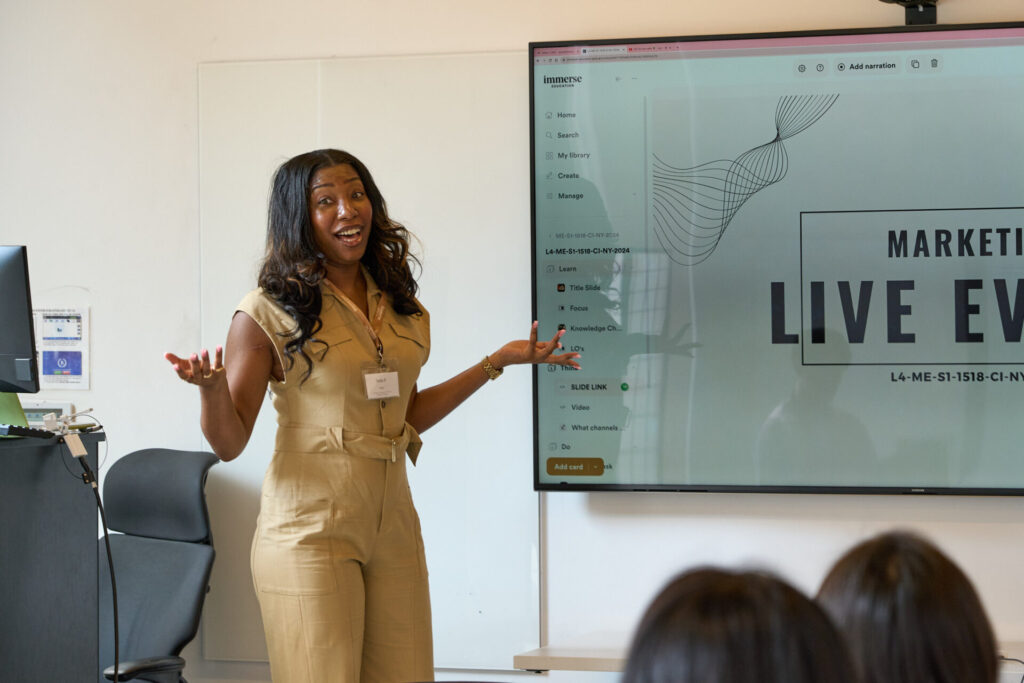If you are here, you are probably considering starting medical school. Our goal is to help you get there and be better prepared. In this section, we will guide you through the most important traditional subjects you will need to master in high school, as well as some less obvious but beneficial subject choices. Each will lay the foundation for the concepts and theories you will learn throughout your medical school years.
Getting into medical school becomes more difficult every year. That’s why you must take the time to learn more about the admissions process for your top choices. Understanding their acceptance rates and admissions data will help you increase your chances of getting in.
According to Study in UK, if you want to enrol in a standard entry medicine course and earn a bachelor’s degree in medicine, you will need to have:
- International Baccalaureate: 37 points, including chemistry and one other science subject.
- A-Level: AAA including chemistry and one other science such as math, physics, biology, or psychology.
- IELTS: 7.5 overall, with no component scoring lower than 7.0.
Each university will have its additional requirements which include a personal statement explaining the various reasons why you want to become a doctor, your work experience, your commitment to medicine, your academic achievements, and a brief explanation of why you will succeed on the course.
At Immerse Education, we want to help you succeed in this first step of your professional career. So let’s take a closer look at the different things you need to pay attention to while you’re still in high school.
Traditional Subjects that Will Help You Have a Strong Foundation in Medicine
While there are no prerequisites in terms of skills and experience to enter the medical field, there are four traditional core subjects (biology, chemistry, physics, and mathematics) that will have a direct impact on your admissions process, and during your first years of medical school.
Biology
Starting biology in high school is a great way to ease your way into the subject and better prepare you for college courses. It will help you build a basic understanding of various concepts (anatomy, physiology, principles of biology, etc.) that will be helpful as you move into more advanced and specialised courses.
Please note that taking Biology is not a requirement for admission or success in the medical field, but it will help you feel more comfortable and understand various concepts that will be a constant in your daily life in medical school.
Chemistry
Various experts in the field agree that enrolling in advanced chemistry courses while still in high school will be beneficial as you begin the admissions process for medical school. Not only will this familiarisation help you get started in the core subjects of your future career, but it is also a requirement of any medical school in the UK.
Understanding chemistry is essential for any physician. It helps you develop the skills necessary to understand how drugs or medications interact with patient care and their systems. It also makes it easier for you to prescribe dosages and administer treatments after diagnosis.
At Immerse Education, we are sure that combining advanced courses in Biology and Chemistry will help open doors for your future career. And if you want to go the extra mile, then you should consider adding an extra subject (physics, maths, or even psychology) to the equation.
Physics
High school physics will benefit you as a future medical student. This subject lays the foundation for key concepts and principles that will be part of your pre-med requirements. At the same time, it will help you develop critical thinking skills that will play a key role in your success in saving and preserving the lives of your patients.
Mathematics
High school math is responsible for laying a strong foundation in areas such as algebra, geometry, calculus, statistics, trigonometry, and others that will help you succeed in pre-med courses and your admission to medical school.
As you investigate the different curricula that universities have to offer, you will be able to understand how math is so relevant to this field. For example, you will need it to:
- Calibrate respiratory care equipment.
- Count and monitor pulse and respiratory rates.
- Calculate drug dosages.
- Determine minute ventilation and ideal patient weight.
Less Obvious but Beneficial Subject Choices
Your preparation does not end there. You will be entering one of the most competitive fields with an average acceptance rate of 43.7%. As a high school student, there are other advantageous classes for you to consider.
Psychology
This is one of those science classes that will make you stand out from the crowd and make a better impression during your admissions process to any medical school.
For example, Kent Medway states that if you don’t have both Chemistry and Biology for A-Level, then you should consider having Psychology, Physics, Math, or Computer Science. While Lancaster says that you can apply with two of the following subjects: chemistry, biology, or psychology.
Schools such as Leicester, Manchester, Sheffield, and Keele accept Psychology as a second science subject.
Sociology
This is an elective you should consider taking, as it will help you understand the various social factors that affect human health and wellness. It’s also designed to teach you about human behaviour and patterns, which will come in handy as you begin your journey in the medical field.
After all, as a doctor, you want to be able to see your patients beyond their symptoms or pathologies, but also in terms of their social context, as it has a direct impact on their health care and healing conditions.
Ethics/Religion
Ideally, every future physician should take an ethics course. You will play a key role in your profession as you will be faced with difficult decisions that must protect the rights and dignity of your patients.
As a physician, you will also need to develop a better understanding of ethical issues such as conflicts of interest, informed consent, integrity of care and research, human dignity, patient care, and more.
Don’t let the fear of what others might think keep you from developing various skills and knowledge in this area.
Languages
Learning a new language is not part of the medical school admission process, but it will come in handy if you are offered the opportunity to volunteer in a foreign country or if you are offered an internship abroad.
For example, you might consider learning Mandarin or Spanish when enrolling in a new language program. Both will open the doors to different opportunities and allow you to communicate with a very large part of the world’s population.
Rounding Out with Extracurriculars
As you continue on your path to medical school, there are two main things you need to consider: gaining practical experience and developing relevant skills to help your profile stand out from the crowd.
Let’s take a closer look at how you can do both.
Gaining Practical Experience
It’s possible, and even highly recommended, to focus on gaining practical experience while still in high school. There are several ways to accomplish this goal.
For starters, you can do an internship at a hospital or clinic near you. It’s very common for medical facilities to offer high school students the opportunity to intern with them to better understand what it means to be a doctor. You can expect to observe some surgeries (in the UK, you’ll need to be over 18 to enter a surgical theatre), interact with patients, and learn about the different specialities you can pursue.
At the same time, it’s highly recommended that you do some volunteer work in the healthcare field. Not only will you get a chance to see how professionals interact with their patients, but you will also develop important skills such as empathy, communication, and problem-solving.
Finally, you can consider taking some pre-med courses abroad. Not only will this give you the chance to gain a new perspective on healthcare and medicine, but it will also expose you to other healthcare systems, practices, and knowledge, and help you develop people skills such as adaptability, cultural competence, and language fluency.
Developing Relevant Skills
As a future doctor, you must focus some time on developing people skills that will make your life easier and make you a more approachable professional.
For starters, you need to spend time improving your communication and empathy skills, both of which are needed to better provide patients with the right information in the right way, while protecting their feelings and understanding the impact it can have on them.
You will also need to perfect your attention to detail, professionalism, and teamwork skills. As a future doctor, you need to become a hard-working professional, an organised person, and a leader.
But your work does not stop there. In medicine, you must take the time to develop the necessary industry-specific skills, which include first aid and CPR, as well as medical certifications. For the latter, we suggest you consider the Certificate of Higher Education (CertHE) and one of the following:
- Pharmacy Technician
- Medical Assistant
- Certified Medical Coder
- CNA
- EKG Technician
- PCR Techniques
- Clinical Oncology
- Advanced Dialysis
- AI for Digital Health
Join the Immerse Education 2025 Essay Competition
Follow the instructions to write and submit your best essay for a chance to be awarded a 100% scholarship.

Different Career Paths in Medicine
Once you’ve decided that you want to go to medical school, it’s time to understand what your future years will look like. As you can imagine, becoming a doctor involves more than just sitting in class and listening to professors explain key concepts. There is a lot of practice, research, and study that needs to happen before you earn your first diploma.
Some of the following recommendations are things you can do alongside your medical studies to build a stronger profile and become more attractive to a future employer.
Clinical Practice
As a medical student in the UK, you will be required to complete clinical placements to gain practical experience in a variety of specialities and settings. These supervised placements can take place in teaching hospitals, private hospitals or clinics, community health centres, or even speciality areas.
Clinical rotations are an important part of your professional development where you will
- Gain a better understanding of the speciality you want to enter.
- Develop a variety of skills, including performing physical examinations, taking patient histories, communicating, etc.
- Network with other professionals.
- Attend and participate in consultant ward rounds.
- Observe surgical and anaesthetic procedures.
- Participate in multidisciplinary team meetings with nurses, physicians, social workers, and others.
Research
Research is a critical part of your medical education, and you will be able to see how important it is as soon as you start the admissions process. There are schools, such as Stanford Medical School, that place a high research value and only select students with prior research experience for their programs. Of course, other schools don’t require this skill, so take the time to understand the specific requirements of the schools of your choice.
During your time at school, you will be involved in medical research, which is an important part of becoming a doctor as it broadens your knowledge and understanding of the field. To gain research opportunities outside of the classroom, we encourage you to participate in programs, internships, and study programs that focus heavily on medical research. The best way to find them is to talk to your professors, professional network, or clinical mentors.
Public Health
Despite the common belief to the contrary, you can enrol in public health programmes even if you are not a medical graduate. As stated by the BMJ “non-medical consultants will be registered with the UK Public Health Register while medical consultants will be registered with the GMC”.
To enter the public health training programmes you will need a minimum of 48 months of work (half of it spent in an area related to public health), and an MBBS (Bachelor of Medicine and Bachelor of Surgery) degree or a first-degree or a Masters/Ph.D. If you already have a medical degree, then you need full registration and license to practice as well as the completion of a UK foundation programme or 2 years equivalent overseas.
And you will need to pass two tests (Faculty of Public Health Diplomate Examination (DFPH), and the Final Membership Examination (MFPH)/Objective Structured Public Health Examination (OSPHE)) so you can become part of the Faculty of Public Health of the United Kingdom.
Medical Education
Teaching is the highest form of learning, and this is incredibly common in the medical world. As a medical student, we encourage you to take advantage of the opportunity to teach others. It’s something that’s voluntary and takes a lot of time, but it’s the best way to solidify the knowledge you’ve acquired in this field.
You can start by:
- Joining a student organisation and building up your role there until you become an educational leader.
- Form your study group with other medical students.
- Teaching with the medical faculty.
Whatever you decide, remember that the idea behind all of these efforts is to pass on your knowledge to future generations.
Healthcare Administration
According to Westford Uni Online, the National Health Service is one of the world’s largest employers and offers a wide range of career opportunities within different types of organisations, including the NHS, private healthcare, pharmaceutical companies, and even health tech startups.
To get started on this path, you need to pursue an MBA with a concentration in Healthcare Management. They’re designed to help you develop the leadership and management skills for this specific industry, and how to respond to the biggest challenges it faces in the times we live in.
Schools such as City, University of London, Anglia Ruskin University, Imperial College London, and the University of Southampton offer healthcare management courses.
Emerging Fields and Interdisciplinary Roles
The medical world does not stop there, and there are many different options you can consider as you work toward your goals as a future medical professional. Here are some of the most popular fields and roles to include in your options.
- Medical Informatics: Focuses on the study and implementation of computer structures and algorithms to improve the communication, understanding, and management of medical information.
- Biotechnology and Pharmaceutical Research: is a relatively new branch of biomedical science that uses new technologies to produce, formulate, and synthesise biological substances that can act as drug molecules to treat or prevent diseases and syndromes.
- Global Health: In this field, your goal will be to address health disparities and improve health outcomes in low-resource settings, requiring a broad understanding of health systems and cultural competence.
- Medical Ethics and Health Policy: As a professional in this field, you will shape the ethical standards and policies that govern health care practice, requiring a deep understanding of ethical principles and legislative processes.
Final Thoughts
The fact that this is a long and challenging career shouldn’t stop you from starting the admissions process and preparing for medical school. We want you to gain as many tools and skills as possible to better prepare you for the challenge. This is a rewarding field. On the one hand, you can earn very competitive salaries, and on the other hand, you will have the satisfaction of doing something important on a daily basis.
At Immerse Education, we want to help you even more, which is why we’ve created our Medicine Summer School.
This residential programme offers students a glimpse into a discipline that they would not normally encounter during high school, yet remains one of the most popular and competitive career paths in the world. It’s a 2-week program where you’ll explore a wide range of medical concepts and have the opportunity to apply them in a variety of settings.





